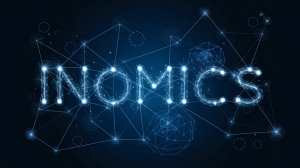Inomics: A Recursive Information Intelligence Framework
About this ebook
Inomics is a revolutionary recursive information intelligence framework that unifies all information systems into a self-regulating, AI-driven model. By integrating axiomatic structuring, definitional governance, atomic information processing, systemic equilibrium, and intelligent automation, Inomics ensures continuous optimization of knowledge networks.
At its core, Inomics represents:
The Ultimate Convergence of All Information Systems
Taxonomics, Nomics, and Omics → Core classification and naming systems
Axionomics, Isonomics, and Atonomics → Foundational principles and structures
Core Framework Components:
Axionomics, Nomics, Taxonomics → AI-powered recursive information structuring and validation
Isonomics, Atonomics, Ionomics → Quantum-assisted equilibrium mapping and atomic structuring
Lanomics, Omninomics, Taxonomics → Blockchain-based standardization and linguistic processing
Omniomics, Ionomics, Atonomics → Biological and neurological information systems
By leveraging:
AI-powered hierarchical structuring – Unifying classification across linguistic, scientific, and computational domains
Quantum-assisted taxonomies – Continuously optimizing recursive learning models
Blockchain-backed interdisciplinary lexicons – Regulating structured information governance
Inomics represents the culmination of all structured informational models into a recursive, self-regulating, universally applicable framework. This groundbreaking approach ensures that AI-driven models continuously refine structured data processing, bridging scientific, linguistic, economic, and computational knowledge into a singular, harmonized intelligence architecture.
About the author
Ronald Legarski is a visionary systems theorist, interdisciplinary researcher, and architect of recursive intelligence frameworks, specializing in AI-driven information structuring, quantum-assisted taxonomy modeling, and decentralized knowledge standardization. As the Founder of SolveForce and Co-Founder of Adaptive Energy Systems, Legarski has played a pioneering role in integrating structured reasoning, recursive automation, and scalable information intelligence frameworks.
As the creator of Inomics, Legarski introduces a revolutionary recursive intelligence framework where axiomatic structuring, quantum-assisted information processing, and blockchain standardization create a unified system for managing, validating, and optimizing global knowledge networks. His research explores recursive linguistic modeling, AI-driven definitional governance, and interdisciplinary taxonomic harmonization, ensuring structured data processing adapts dynamically across all domains.
With expertise spanning computational linguistics, artificial intelligence, quantum mechanics, and decentralized governance, Legarski's work redefines knowledge standardization through recursive system optimization and interdisciplinary verification. His leadership in Adaptive Energy Systems applies Inomics principles to AI-powered recursive modeling, blockchain-driven scientific verification, and dynamic information equilibrium mapping, while SolveForce continues to advance telecommunications, intelligent data structuring, and decentralized AI knowledge frameworks.
Through his research, writing, and technological innovations, Ronald Legarski pioneers a recursive, AI-driven framework where structured information intelligence continuously evolves, ensuring global knowledge integration, interdisciplinary verification, and self-regulating systems. His vision for Inomics establishes the foundation for the next stage of artificial intelligence, quantum computation, and structured data intelligence, providing a scalable, universal system for optimizing the way knowledge is created, stored, and applied across all scientific, linguistic, and computational disciplines.








